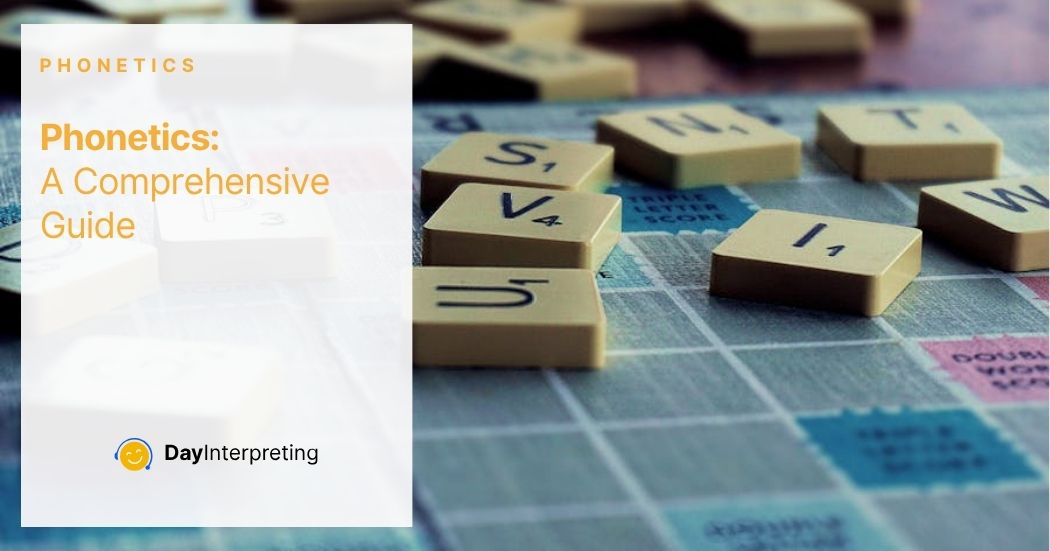Everybody knows that the English alphabet consists of consonants and vowels. If we let the air flow freely through our vocal tract, we will utter a, o, or e. Creating obstacles in our nose, mouth, or throat will produce d, m, r, etc.
Still, not everybody knows that there’s a special discipline that studies sounds, called phonetics. The phonetics meaning is focused on the way we produce and perceive different sounds. In this article, we’ll break down the phonetics definition and some practical ways in which this linguistic subgenre has found practical use.
What Is Phonetics?
In a nutshell, phonetics is a branch of linguistics that analyzes sounds. In broader terms, the phonetics definition encompasses the physiological aspect of sounds, as well as their acoustic features. So, phonetics also studies how our physical organs work to produce sounds, together with the acoustic qualities of sounds.
In line with that, the phonetic aspect of linguistics includes acoustic phonetics (the acoustic characteristics of uttered sounds), the articulatory phonetics (how we place different parts of the mouth and the vocal tract to utter speech sounds), and the linguistic phonetics (using sounds to create syllables and words).
Phonetics Foundations: Phonemes
A phoneme is more than the uttered iteration of a letter. Phonemes are the units that distinguish words from one another. For instance, if we say cap, cat, and car, the unit r in “car” is the feature that distinguishes the word car from cap and cat.
A phoneme’s next of kin – the allophone – is an iteration of a phoneme. For instance, the phoneme l is phonetically different in love than it is in dull (in the latter example, a slang enthusiast or a pun-loving linguist would call it a dullophone, but we won’t go there). Hence, we have two allophones of the phoneme l.
What Does IPA Stand for in Phonetics?
The acronym IPA stands for the International Phonetic Alphabet. It’s a closed, standardized system used by linguists worldwide to transcribe various languages with the same set of symbols. In a way, the IPA can be perceived as an equivalent of the periodic table in chemistry. Just like every chemist in the world knows those symbols, every linguist and phonetician knows their IPA.
To exemplify the use of the IPA, let’s take the word Moscow (the capital of Russia). The IPA transcription would be mɒskəʊ (UK), and ˈmɑː.skoʊ (US), respectively. An interesting example would be transliteration. Since the original Russian term is Москва in most languages of Russia, the transliterated version in English would be /moskva/. When we want to illustrate in the target language how a certain word is literally pronounced in the native language, we reach out for transliteration. However, when we want to transcribe a certain word in the given language – for instance, Moscow in English – we use the IPA system and the phonetics alphabet, as illustrated above.
How to Learn Phonetics?
Phonetics is typically learned in school, as part of domestic or foreign language classes. Most native speakers know the phonetics of their mother tongue by default, although they might not always know how to precisely call the specific phonetic terms.
However, learning foreign languages is where phonetics comes in handy, especially the IPA system. If you’re learning English as a foreign language, you might not always know what’s going on in the phonetic yard. Just take the words bury, jury, and fury. Unless you know how to read the phonetic alphabet, you most probably won’t be able to read those words properly. They are /ˈberi/, /ˈdʒʊri/, and ˈfjʊr.i/. So, even though they differ in only one phoneme, the pronunciation is much different.
For these reasons, phonetics has been an integral part of foreign language classes for many decades. Understanding how sounds are produced in our mouth, nose, and throat, and being able to note them down is a great shortcut to learning a foreign language quickly and more accurately.
Applying Phonetics in Everyday Situations
Phonetics isn’t restricted only to the language-learning process. On the contrary, phonetics plays a special role in diagnosing and healing hearing and speech disorders. Also called clinical phonetics, this sub-branch of phonetics is essential for eliminating stuttering, cluttering, or even dyslexia. In King’s Speech, we have seen what a speech therapy might look like. Although exaggerated for cinematographic reasons, the way in which the speech therapist approached King George VI is a rare occasion where a wider audience could see what this process looks like.
What’s more, preserving endangered languages is another field where phonetics is a handy tool. When a language is close to extinction, phoneticians and other linguists work together to save it from dying out. Even if a language is not actively used anymore, phonetics helps us learn it as if it were still used. The Latin language is an example of phonetics used for that matter.
Further Use of Phonetics
Studying how we can produce and perceive sounds will become more interesting and important due to the rise of artificial intelligence. With every voice search, the role of phonetics is growing. The language learning models we train and use as we speak are all partially based on phonetic findings and examples. Hence, let’s keep an eye on this linguistic field because every device that can produce a sound under our command will remain dependent on phonetics.

Pavle has a decade and a half of linguistic experience, first as an ESL teacher, then as a translator and interpreter. In the last third of his career quest so far, he has turned to content marketing, as the most exciting branch of applied linguistics.
Having worked as a content specialist and editor while following the latest linguistic and tech trends, he has specialised in bringing the current affairs in the lingtech sector to the spotlight.
When he’s not crafting his briefs and drafts, and writing his stuff, he likes to pluck a chord or two on his old guitar, or just go to a pub quiz; a father of three, a husband of one.




0 Comments